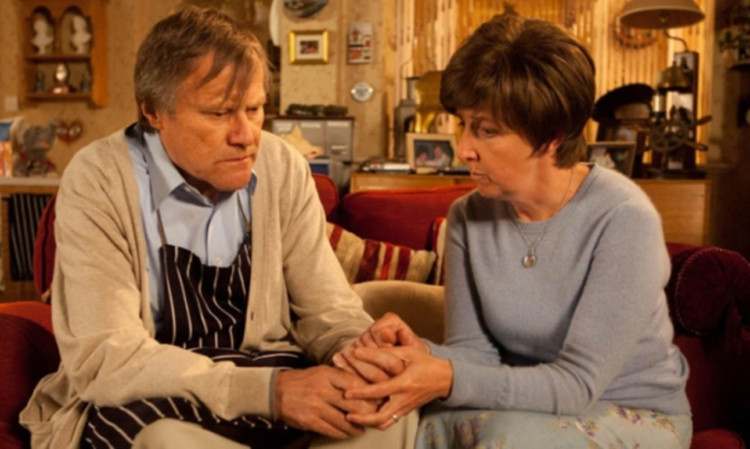A Dundee minister has said any laws for assisted suicide in Scotland should be named after a Coronation Street character because he believes the debate is being conducted on soap opera terms.
The Rev David Robertson, Free Church of Scotland minister, suggested MSPs should coin euthanasia legislation “Hayley’s Law” after the Coronation Street character Hayley Cropper.
Cropper, Britain’s first transgender soap character, was diagnosed with inoperable cancer and decided to take her own life by drinking a lethal cocktail in the arms of her husband in a recent episode.
Mr Robertson said: “Have we reached the stage in Britain where serious debate is to be replaced by opinion polls, influenced by emotive storylines in soap dramas?
“And why (is it) so one sided?
“Where is the storyline about the elderly person feeling pressurised into asking for euthanasia?”
“The vast majority of arguments I have heard in favour of euthanasia seem to be based on this kind of propaganda, which in turn fuels emotion, prejudice and feeds people’s irrational faith.
“On the emotional side we are presented with lots of heartbreaking stories of people in pain. It is suggested that we would not allow a dog to remain alive in such misery, so why a human?
“It is a simplistic emotional argument and like all such, incredibly dangerous.
“They (the assisted suicide lobby) have faith that people are essentially good, and that human institutions will act honourably and justly, unaffected by greed, money or power.
“That is a very dangerous belief.”
Mr Robertson suggested that evidence from the Netherlands and Belgium shows that euthanasia laws did not stop with voluntary assisted suicide for the terminally ill, but moved on to the depressed, the elderly and even children.
He added that people would be “put down when they cease to be useful” and “a burden on society”.
